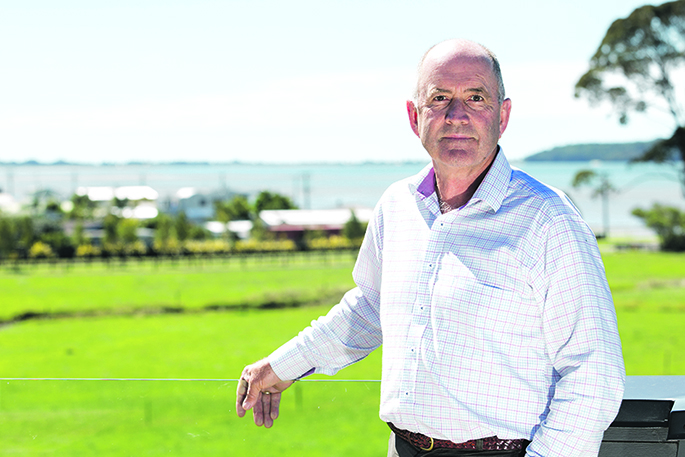The kiwifruit industry’s recovery from the vine disease Psa-V is impressive but there’s no time to be complacent, say Barry O’Neil, CEO of Kiwifruit Vine Health. “There are four other virulent strains of Psa-V in Korea and Japan which we definitely don’t want in New Zealand, and at least another 69 known pests and pathogens which would pose serious threats if they became established in this country.” Barry, who steps down from his role with KVH in March, says the kiwifruit industry’s leaders and their collective response to the outbreak of Pseudomonas syringae actinidiae in 2010 was among the reasons he took up the role six years ago. “Very early in the response, the industry put up $25 million, which was matched dollar for dollar by the government, to tackle the disease. It was a very wise and smart move by the industry to get government to make a significant financial contribution to help the industry recover.” The unified nature of the kiwifruit industry and the fact that all sectors, from growers, contractors, post-harvest, to New Zealand Kiwifruit Growers Inc and Zespri, worked collaboratively to get through was also impressive. Talented people Kiwifruit Vine Health, under general manager John Burke, was established in early 2011 to coordinate the disease response. “It was set up very quickly and a team of talented people, seconded from throughout the industry, was put together. Without the generosity of their employers, there’s no way such a skilled team could have been drawn together so quickly.” The choice of the name Kiwifruit Vine Health was also enlightened, says Barry, as it means today the organisation is rightfully focusing not only on keeping Psa-V in check, but also on other pest and disease threats. It was on Barry’s watch in 2014 that kiwifruit became the first industry to sign up to the Government Industry Agreement on Biosecurity Readiness and Response (known as GIA). “There was some concern about what being part of a response to a biosecurity incursion might cost but I see it as an investment in helping protect our industry. It means we can be around the table and part of the decision-making.” Stink bug Barry attributes the close relationship horticultural industries have with government through the GIA to the fact that MPI is now fumigating all sea containers from Italy in an effort to keep out the brown marmorated stink bug. “Climate change plays a part in biosecurity risk too, as warmer conditions could make New Zealand suitable for new pests and diseases, including the Queensland Fruit Fly. “No matter how hard MPI works to keep bugs and diseases out, some will slip through.” That’s why public education – aimed at encouraging every New Zealander to become a biosecurity risk manager, in effect creating a ‘Biosecurity team of 4.7 million’ – is so important. Barry feels he’s leaving KVH and the kiwifruit industry in good heart. O’Neil has done what he could do. It is now time for someone else to take this role. “I’ve thoroughly enjoyed working with our small but highly-effective KVH team of 10 and I have especially enjoyed my contact with growers. They are the salt of the earth, call and spade a shovel so you know exactly where you stand with them.” Psa lessons Barry also has admiration and respect for those in the post-harvest industry, Zespri and New Zealand Kiwifruit Growers Inc and the leadership they have shown in bringing the industry back stronger and with an even brighter future than before Psa-V. “We certainly never want to see another incursion like Psa, but it taught us a lot.” Stu Hutchings of OSPRI the has been appointed as the new KVH CEO and takes over from Barry in March. KVH board chairman, Adrian Gault, says Stu joins the team well-qualified with a wealth of experience and knowledge in management of biosecurity risks; research and innovation; and working on a day-to-day basis with farmers, alongside industry and government partners. “Stu is perfectly placed to take the helm and continue the great work the KVH team has been doing to stop unwanted pests and diseases from making their way into our communities and onto our orchards, and being well-prepared in case they do get here.”
Saturday, April 20, 2024
Posted: 10:38am Tuesday 13 Feb, 2018
No time for biosecurity complacency

Barry O’Neil is stepping down as CEO of Kiwifruit Vine Health.


0 Comments
Leave a Comment